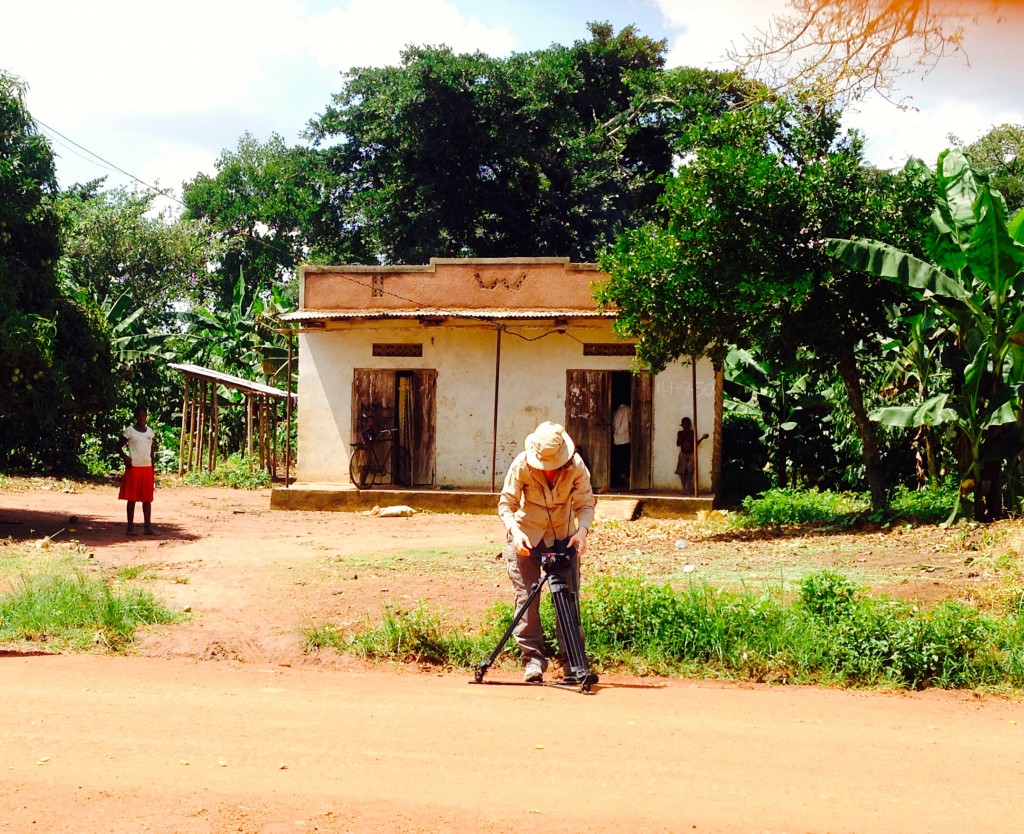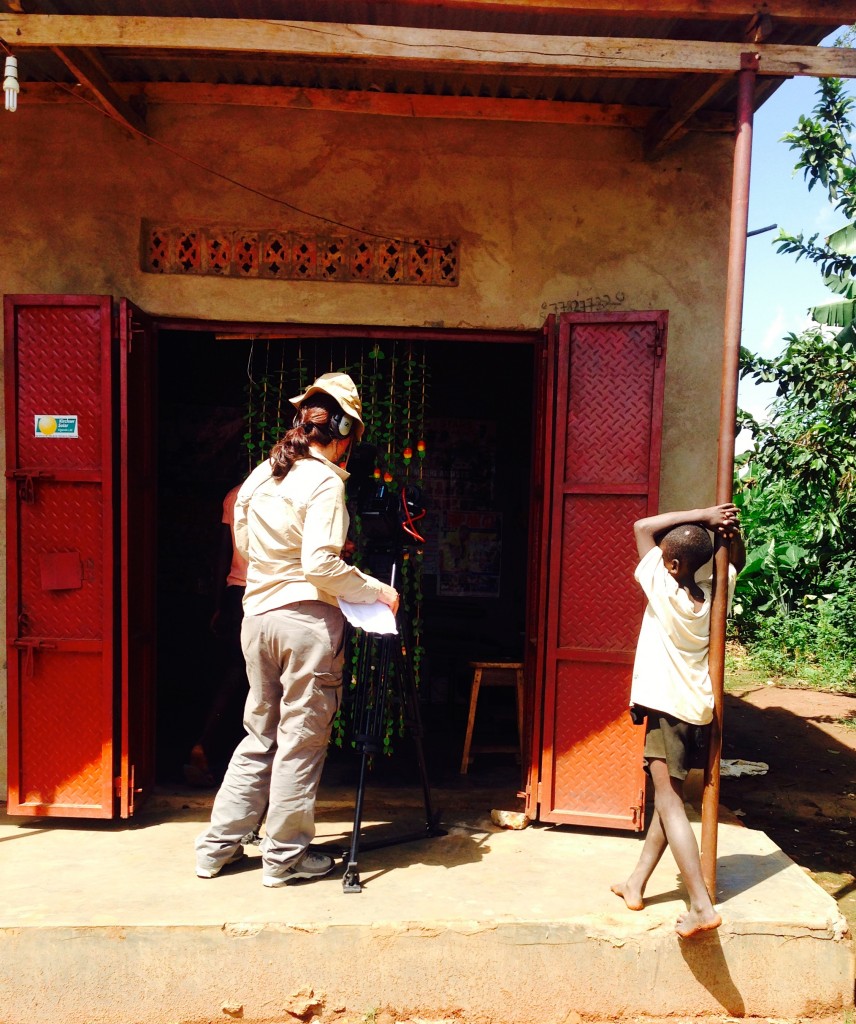Lucy Mallatrat
Meet our Volunteer Lucy Mallatratt; a broadcast television producer/director with 17 years experience in the industry. Lucy’s work has taken her round the world. She recently produced an international documentary on Tutankhamun for BBC, Discovery and Smithsonian, and she has spent a lot of time in Uganda making films for a children’s charity and for the Ugandan government, documenting the activities of the Irish garda training the Ugandan riot police. Her passion for Africa led her to join the PfP field trip to South Sudan, Uganda and Zambia in June/July 2015, to film four of our projects. Lucy describes her experiences on the trip.
I jumped at the chance to join Power for the People on their field trip, to document these donor projects. It is exciting to be involved with this organisation at the start of their operations and I believe that short films are the very best way of connecting with people who want to help. I hope the films we’ve made will make an impact on the people who watch them, and kickstart awareness, involvement and donations to these causes.
This trip was probably the hardest I’ve ever done in my career, for a number of reasons. I’ve spent a lot of time filming in various African countries and seen some terrible things, but I wasn’t prepared for the misery and desperation I saw this time around. Our first destination was Juba Hospital in sweltering South Sudan – the world’s newest nation that is still in the grip
of debilitating conflict. We arrived at the country’s only national referral hospital, which had not had power at all for over a week. Think of a big hospital in the UK without power for a week and you can start to imagine the devastation we witnessed.


Hospital environments are always tough to film in no matter where you are in the world; in a place where so much of the suffering was wholly preventable, it was heartbreaking. Hospitals need constant, reliable power – there is barely a semblance of a town grid in Juba so the hospital relies on old generators running on expensive diesel that they cannot run all the time. And if the diesel doesn’t turn up, there is no power at all.
Mbale Hospital in Uganda also faces making difficult decisions every day about patient management because of a lack of reliable power. I filmed on a children’s ward that was valiantly battling a daily influx of very sick children.
Most of them are on life-saving equipment, like oxygen machines, to keep them alive: no power means death. I met and interviewed so many dedicated hospital staff who are passionate about helping their patients, but are often helpless in the face of intermittent or failing electricity. We had a fantastic trip deep into the rural areas of Eastern Uganda to film a local women’s community group. They are doing all they can, on meagre resources, to lift themselves and their families out of poverty. We arrived in the village to an incredible reception of the ladies singing welcome in unison together.
These people have nothing, they are not just on the poverty line, they barely keep themselves from starvation. Despite all that they suffer, they have a remarkable spirit, positivity and generosity. They are determined to make life better for their community and to do it collectively.
PfP want to build and power a community centre for the village which will serve as the jumping off point to kick start small businesses, training and healthcare. I know that the women will jump on anything they are given to help themselves and each other. They are remarkable people.
In Zambia, I filmed at Kayula Cancer Foundation who run a small facility that gives accommodation to children who are in treatment for cancer and their carers. I expected it to be a difficult environment to film in but it was a lovely place full of smiling, laughing kids and relaxed parents. Childhood cancer is a real problem in Zambia and the situation is exacerbated by few resources for treatment and rehabilitation. The families who use this service are from the remote areas of rural Zambia and they survive on subsistence level farming. Cancer treatment takes months to complete and these families have nowhere to stay whilst their child is in treatment. Kayula is the only place that offers free board and accommodation so that these children can complete their treatment. They support up to 20 people at a time so there is huge demand for places at the centre. I really hope they get the funding they need to build and power a bigger centre so that they can support more families battling childhood cancer.
A big thank you to Lucy and her team, for making these amazing films that bring the reality of our project communities to life for anyone anywhere in the world who wants to help.
If you want to become a volunteer then you can contact us here.

